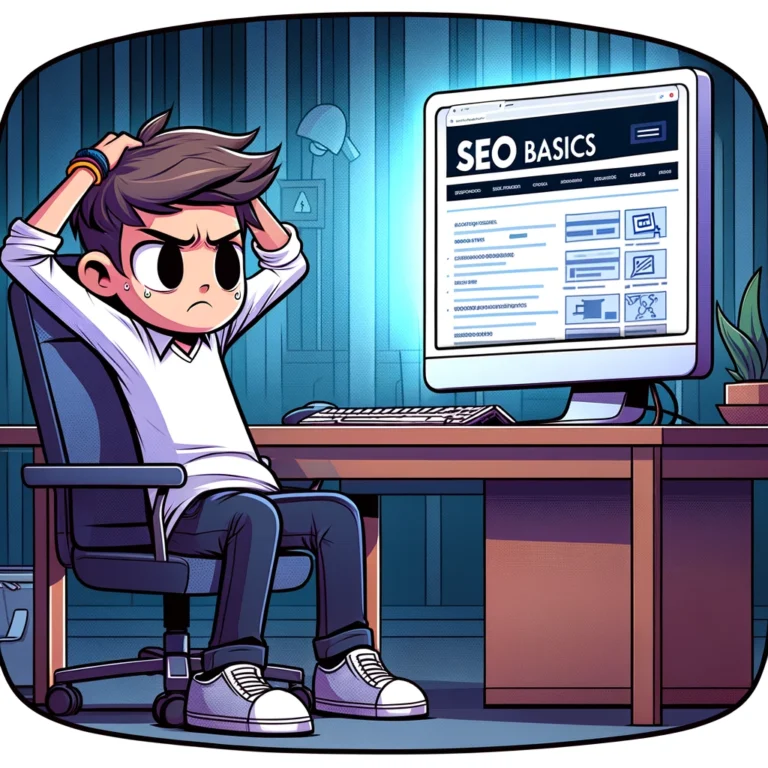In the digital age, where information is at our fingertips, the importance of content quality cannot be overstated, especially when it comes to Search Engine Optimization (SEO). High-quality content is the cornerstone that not only enhances your website’s visibility but also builds trust with your audience, encouraging more engagement and, ultimately, conversions.
Understanding SEO and Content Quality
SEO is the practice of optimizing your website to get higher rankings in search engine results pages (SERPs). While many factors contribute to a strong SEO strategy, content quality plays a pivotal role. But what exactly makes content “high quality”? It’s not just about well-written text. High-quality content is relevant, informative, easily understandable, engaging, and, most importantly, useful to the reader.
Relevance: The Starting Point
The journey to excellent content begins with relevance. Search engines aim to provide the most relevant results to users’ queries. This means your content must align with the interests and needs of your target audience. Understanding what your audience is searching for—whether it’s answers to questions, specific products, or general information—is key to crafting relevant content.
Keyword Research: Unlocking Audience Intent
Keyword research is an essential part of determining what your audience is interested in. By identifying popular keywords and phrases that your target audience uses in search engines, you can tailor your content to meet their needs more precisely. This doesn’t mean stuffing your articles with keywords. Instead, it involves integrating them naturally into your content to enhance readability and relevance.
Quality and Depth of Information
Once you understand what to write about, the next step is to ensure your content is informative and thorough. High-quality content typically covers topics in depth, providing valuable insights that are not readily available elsewhere. This could mean including case studies, original research, expert opinions, or detailed explanations that add value beyond the basic information found on other websites.
Readability and User Engagement
Even the most informative content needs to be readable and engaging. Large blocks of text can be intimidating and may deter readers. To improve readability:
- Use subheadings to break down sections.
- Employ bullet points to clarify benefits or important points.
- Include images or videos to explain complex concepts or to maintain interest.
Engagement goes beyond readability. Encouraging user interaction, such as asking questions or inviting comments, can help keep readers on your page longer, which search engines interpret as a positive signal about the quality of your site.
Technical SEO: A Supporting Role
Technical SEO, which includes optimizing website speed, mobile-friendliness, and structured data, also plays a crucial role in content effectiveness. No matter how good your content is, if your website provides a poor user experience, it’s less likely to rank well. Ensuring that your site is technically optimized makes your quality content accessible and enjoyable for users and search engines alike.
Regular Updates and Content Freshness
The internet is ever-changing, and what is relevant today may not be tomorrow. Regularly updating your content ensures it remains accurate, relevant, and engaging. This not only helps maintain your rankings but also shows your commitment to providing value to your audience.
The Impact of Content Quality on SEO Performance
High-quality content can lead to:
- Increased dwell time: More engaging content keeps visitors on your site longer.
- Lower bounce rates: When users find useful information, they are less likely to leave immediately.
- More backlinks: Other sites are more likely to link to your content if it is authoritative and informative.
- Improved rankings: Search engines reward sites that provide value to users with higher visibility.
These factors collectively enhance your SEO efforts, driving more organic traffic to your site and improving your online presence.
The role of content quality in SEO is undeniable. It not only helps in achieving better rankings but also in building a reputable online presence that attracts and retains an audience. By focusing on the needs of your readers and continuously improving your content, you can ensure that your SEO efforts yield long-term benefits. High-quality content is not a quick fix but a crucial investment in the success of your digital marketing strategy.

High-quality content stands at the heart of effective SEO. As we continue to explore the pivotal role content plays, it’s important to recognize how strategic content creation aligns with broader digital marketing goals, thereby maximizing SEO benefits.
Enhancing Authority and Credibility
Trust is a significant currency on the internet. Websites that are seen as authoritative resources by users and search engines alike tend to perform better in search results. Content quality enhances authority; well-researched, well-crafted content positions you as an expert in your field. This is particularly true when your content is cited by other reputable sites, amplifying your reach and influence.
Social Signals and Content Sharing
Quality content is shareable content. When readers find value in your articles, they are more likely to share them across social media platforms. This not only increases your content’s reach but also sends positive signals to search engines about your site’s value. While the direct SEO benefits of social shares are still debated among experts, there’s no denying that increased visibility can lead to more traffic, backlinks, and ultimately, better rankings.
Content Variety and Formats
Diversifying your content types can also enhance engagement and SEO. Incorporating a mix of text, images, videos, infographics, and podcasts caters to different audience preferences, making your content more appealing and accessible. Each format can target a different aspect of user intent, capturing a wider audience and keeping them engaged longer on your website.
Strategic Content Promotion
Creating great content is only the first step; promoting it effectively is just as crucial. Utilizing email newsletters, social media posts, and even paid advertising can help draw attention to your content. The more eyes on your content, the higher the potential for increased traffic and backlinks, which are beneficial for SEO.
User Feedback and Interaction
Listening to user feedback and monitoring how they interact with your content can provide valuable insights. Tools like Google Analytics allow you to see which pieces of content perform best in terms of engagement metrics such as time on page, pages per session, and bounce rate. These insights can guide your future content strategy, letting you know what works and what needs improvement.
SEO Tools and Analytics
Leveraging SEO tools can offer a competitive edge in crafting high-quality content. Tools like Ahrefs, SEMrush, and Moz provide insights into keyword trends, competitor analysis, and backlink opportunities. They also help monitor your site’s performance in SERPs, giving you a clearer picture of how your content impacts your SEO goals.
Integrating User Intent with Business Goals
Ultimately, your content should serve the dual purpose of fulfilling user intent and promoting your business goals. Aligning content with user needs while subtly guiding them towards your products or services can lead to better conversion rates. This strategic alignment not only improves SEO outcomes but also enhances the overall effectiveness of your marketing efforts.
Measuring Success and Making Adjustments
The digital landscape is dynamic, necessitating ongoing adjustments to your content strategy. Regularly measuring the success of your content through key performance indicators (KPIs) such as organic traffic, search rankings, and conversion rates is essential. Based on these metrics, you can fine-tune your approach, experiment with new content ideas, and continually improve your SEO strategy.
Conclusion
The integral role of content quality in SEO cannot be underestimated. It is a powerful tool that drives visibility, engagement, and conversions. By committing to high-quality content creation, actively promoting it, and continuously optimizing based on performance data, you can build a robust digital presence that stands out in the competitive online marketplace. As you refine your content strategy and align it with SEO best practices, you’ll not only meet but exceed your digital marketing objectives.



